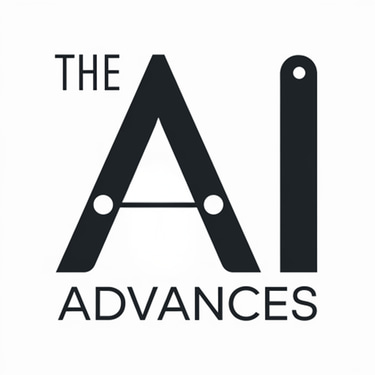Revolutionizing Biology: The Impact of AI on Life Sciences
BASICS OF AIBIOLOGY
3/25/20252 min read


Introduction to AI in Biology
Artificial Intelligence (AI) has emerged as a powerful tool across various fields, driving innovation and efficiency. In the realm of biology, AI applications are revolutionizing research, diagnostics, and therapeutic strategies. From predicting protein structures to accelerating drug discovery, AI is reshaping how biologists understand complex biological systems.
Enhancing Biomedicine with AI
AI plays a crucial role in biomedicine, where machine learning algorithms analyze vast datasets to discover patterns that are not easily visible to the human eye. For instance, AI-driven tools facilitate the identification of genetic mutations linked to diseases, allowing for personalized medicine approaches. In imaging, AI algorithms enhance the analysis of medical images, improving diagnostics accuracy and efficiency in detecting conditions like tumors or infections.
AI in Drug Discovery and Development
The pharmaceutical industry has significantly benefited from AI technologies. Traditionally, the drug discovery process is lengthy and costly, often taking years and billions of dollars to bring a new drug to market. AI accelerates this process by predicting how different compounds will interact with biological targets. Machine learning models can also simulate clinical trials, thereby optimizing dosage and patient selection before actual trials begin, reducing time and cost substantially.
Moreover, AI's capability to analyze research papers, clinical data, and real-world evidence enables pharmaceutical companies to make informed decisions, identifying potential candidates for drug development. As a result, we are witnessing an increase in the introduction of novel therapies, particularly in areas like oncology and rare diseases.
AI in Genomics and Proteomics
In the fields of genomics and proteomics, AI enhances our understanding of complex biological data. High-throughput sequencing technologies generate enormous genomic datasets, which require robust analytical tools. AI-driven algorithms help in interpreting this data, enabling researchers to uncover insights related to gene expression and protein interactions that inform disease mechanisms.
Furthermore, AI assists in the integration of multi-omics data, combining genomics, transcriptomics, proteomics, and metabolomics to provide a more comprehensive understanding of biological systems. This holistic view facilitates the identification of biomarker signatures that can predict disease and track therapeutic responses in real-time.
Ethical Considerations of AI in Biology
As we embrace the power of AI in biology, it is essential to address ethical questions surrounding data privacy, bias in algorithms, and the implications of AI decision-making in healthcare. It becomes imperative to establish guidelines that ensure AI technologies are used responsibly, emphasizing transparency and accountability in AI-driven healthcare solutions.
Conclusion
AI is undoubtedly transforming the landscape of biology and life sciences. By enhancing biomedicine, expediting drug discovery, and unraveling complex biological phenomena, AI offers unprecedented opportunities for innovation. As researchers continue to explore these realms, the full potential of AI in biology holds great promise for the future of healthcare and our understanding of life itself.
Insights
Explore AI news, expert articles, and workshops.
Connect
Learn
© 2025. All rights reserved.
